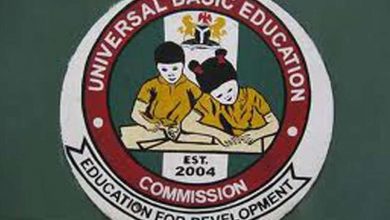ASUU Demands Payment of Withheld Salaries and Criticizes Government Policies
ASUU Demands Payment of Withheld Salaries and Criticizes Government Policies

By AmforGod J. Olisa
The Academic Staff Union of Universities (ASUU) has renewed its call for the Federal Government to pay the remaining three and a half months of withheld salaries. These salaries were withheld when former President Muhammadu Buhari’s administration invoked a ‘No Work, No Pay’ policy during an eight-month strike by ASUU in 2022.
Although the Federal Government paid ASUU members four months of the withheld salaries in late February 2024, the union is still demanding full payment. “Government should pay our withheld salaries; we worked for it. The ‘No Work, No Pay’ policy is not applicable. We are owed three and a half months’ salary, and we have covered all the work that should be done,” an ASUU representative stated.
ASUU has consistently highlighted the government’s failure to honor agreements with lecturers. The demands include the renegotiation of the FGN/ASUU 2009 Agreement, unpaid arrears of Earned Academic Allowance, unreleased revitalization funds, issues related to public universities and the Treasury Single Account, and the proliferation of universities.
In an interview with The PUNCH, ASUU President Prof. Emmanuel Osodeke accused the Nigerian government of inflicting hardship on lecturers and students, showing insensitivity to agreements and the well-being of academics in Nigeria’s public universities. “The issue of the renegotiated 2009 Agreement is neither signed nor implemented; the government has neglected us,” Osodeke said.
Meanwhile, ASUU’s Akure Zone has rejected the Federal Government’s proposed new minimum wage of N48,000, calling it insensitive. The Akure Zone, which includes the Federal University of Technology, Akure; Ekiti State University; Federal University, Oye Ekiti; and Obafemi Awolowo University, Ile Ife, voice
d their disapproval through their chairman, Prof. Adeola Egbetokun, during a press briefing at the union’s zonal office in FUTA.
Prof. Egbetokun criticized the current economic situation and urged President Bola Tinubu to take actions that would alleviate the suffering of the populace. He pointed to the “subsidy-is-gone” announcement and the floating of the naira’s exchange rate as contributing factors to the hyper-inflation seen in higher commodity prices, rising transportation costs, unaffordable housing, and increasing public utility costs.
Egbetokun remarked, “Nigeria is currently engulfed in multifarious and multidimensional issues, largely due to the massive injection of neo-liberal policies from the World Bank and the International Monetary Fund.”
As ASUU continues to push for the fulfillment of these demands, the tension between the union and the government underscores the broader challenges facing Nigeria’s educational sector.






